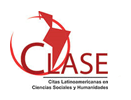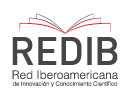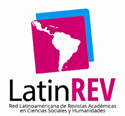Poetics of testimony against the forgotten in the Grupo Cultural Yuyachkani
DOI:
https://doi.org/10.21142/DES-1702-2025-0036Keywords:
Memory studies, Pedagogy of the Performing Arts, Yuyachkani, Symbolic reparationAbstract
The Yuyachkani Cultural Group confronts battles for memory threatened by neocolonial forces. This article analyzes the group's pedagogical principles, which invite its actors and actresses, and workshop participants, to create from their memories and perspectives on their lives and historical contexts. By poetically elaborating their testimonies, dissident memories are reactivated through the use of stage language combined with quotidian relates, producing evidence of an «other» narrative that strengthens the struggle against oblivion. Following the listening policy of the Peruvian Truth and Reconciliation Commission, Yuyachkani puts forward the testimony as a prove of what really happened in times of horror. The group thus invents actor-testigo operations, capable of confronting insufficient stories, in other words, hegemonic ways of inhabiting the world that only include a part of the population.
Downloads
References
Bosi, E. (2003). O tempo vivo da memória: ensaios de psicologia social. Ateliê Editorial.
Comisión de la Verdad y Reconciliación (CVR). (2003). Informe final. Tomo VII. CVR. www.cverdad.org.pe
Diéguez, I. (2005). Prácticas de visibilidad. Ethos, teatralidad y memoria. México. En M. Rubio, El cuerpo ausente (performance política) (pp. 19-32). Grupo Cultural Yuyachkani.
Hibbett, A. y Denegri, F. (2016). El recordar sucio: estudio introductorio. En A. Hibbett y F. Denegri (eds.), Dando cuenta. Estudios sobre el testimonio de la violencia política en el Perú (1980-2000) (pp. 19-61). Fondo Editorial de la Pontificia Católica del Perú.
Jelin, E. (2002). Los trabajos de la memoria. Siglo Veintiuno.
Rubio, M. (2008). El cuerpo ausente (performance política). Grupo Cultural Yuyachkani.
Rufino, L. (2019). Pedagogia das encruzilhadas. Mórula.
Sesc São Paulo. (16 de septiembre de 2019). Abertura e O que significa considerar a memória um direito? com Lilia Schwarcz e Luiz Antonio Simas. [Video]. https://www.youtube.com/watch?v=oU8BTghanBY
Silva Santisteban, R. (2014). Maternidad y basurización simbólica. (El testimónio de Giorgina Gamboa). Alternativas. Revista de Estudios Culturales Latinoamericanos, (3), 1-27. https://alternativas.osu.edu/es/issues/autumn-2014/essays2/silva.html
Simas, L. A. y Rufino, L. (2019). Flecha no tempo. Mórula.
Todorov, T. (2000). Los abusos de la memoria. Paidós.
Ulfe, M. E. (2006). Reflexiones sobre los usos del testimonio en la esfera pública peruana. En G. Cánepa y M. E. Ulfe (eds.), Mirando la esfera pública desde la cultura en el Perú (pp. 203-220). Concytec.
Vich, V. (2015). Poéticas de duelo. Ensayos sobre arte, memoria y violencia política en el Perú. Instituto de Estudios Peruanos.
Downloads
Published
Issue
Section
License

Esta obra está bajo una licencia http://creativecommons.org/licenses/by-nc-sa/4.0/



















